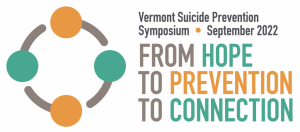Facilitator

Dr. Maureen Monahan, PhD
Suicide Prevention Specialist & Project Administrator
New York State Psychiatric Institute
Description
While trauma and suicide risk are inextricably linked, there are few resources and limited guidance on how to work effectively with clients who exhibit symptoms of both. Further, trauma is known to exacerbate suicide risk, and past suicidal behaviors can become a source of trauma, again adding to future risk.
The Trauma Informed Care Approach to Suicide Prevention workshop provides guidance and a framework for mental health providers to engage in effective Trauma Informed Care (TIC) for clients exhibiting suicide risk. The framework considers the pervasive nature of trauma while promoting environments of healing and recovery, rather than practices and services that may inadvertently retraumatize. TIC is a client-centered approach that highlights the need for establishing safety, trust, choice, and empowerment in the interaction between the client and provider.
In addition, TIC emphasizes shared decision-making and motivational interviewing principles to increase treatment engagement and enhance suicide prevention efforts. The one-hour-long workshop consists of a combination of didactics and interactive discussion.
The workshop offers evidence on the impact of trauma on client suicidality and provides a detailed explanation of how providers can employ client-centered care to mitigate suicide risk. The workshop also includes an overview of the Trauma Informed Care approach to the Zero Suicide Assess, Intervene, and Monitor (AIM) Model and how mental health providers can use these tools with clients. Common obstacles and biases to implementing this approach from the clinician perspective will be presented so providers can be cognizant of these factors when working with clients. Further, the impact of structural racism and discrimination on suicide risk will be discussed. A clinical vignette will be used to demonstrate how one can apply the TIC approach with clients. The workshop concludes with a summary discussion and Q&A.
Learning Objectives
Upon completion of this program, participants should be better able to:
- Summarize the Trauma-informed Care approach
- Describe the relationship between trauma and suicide risk
- Describe individual and cultural sources of trauma
- Identify how trauma presents and affects an individual’s ability to engage in treatment
- Recognize a trauma-informed approach to suicide prevention

